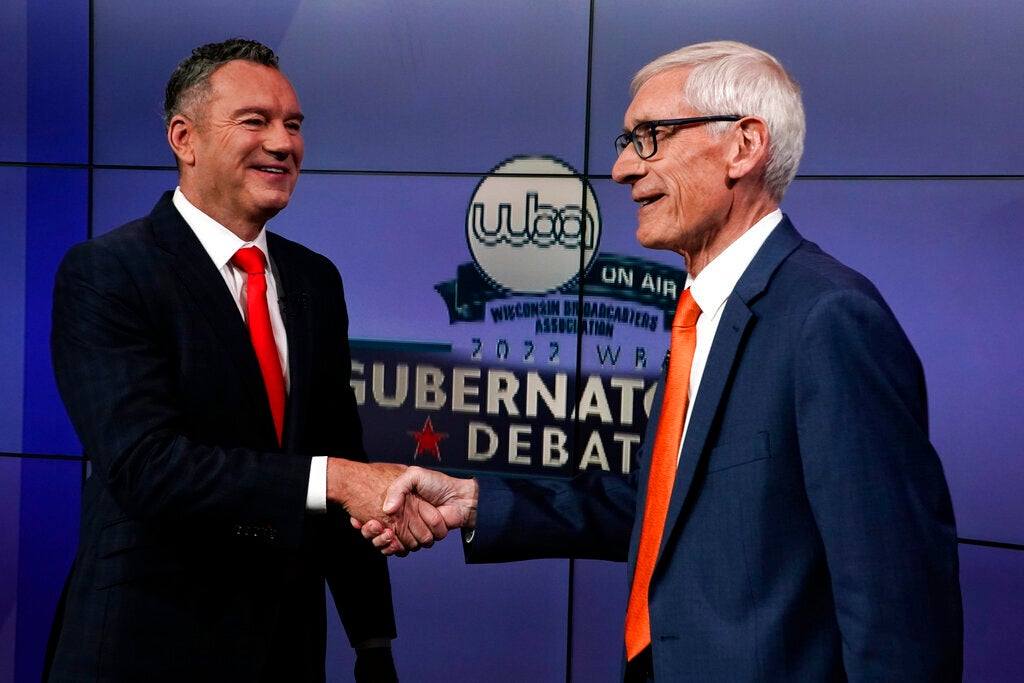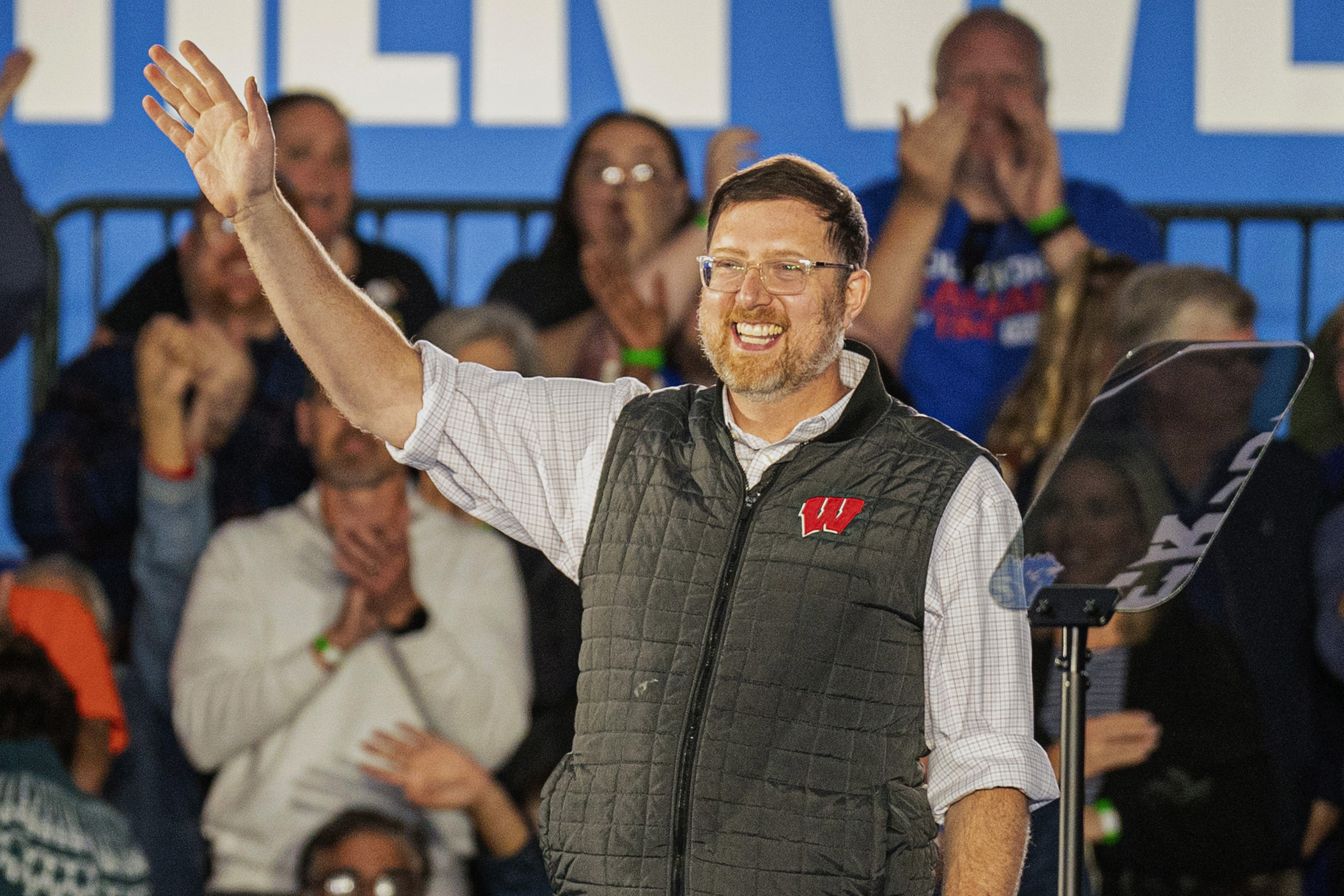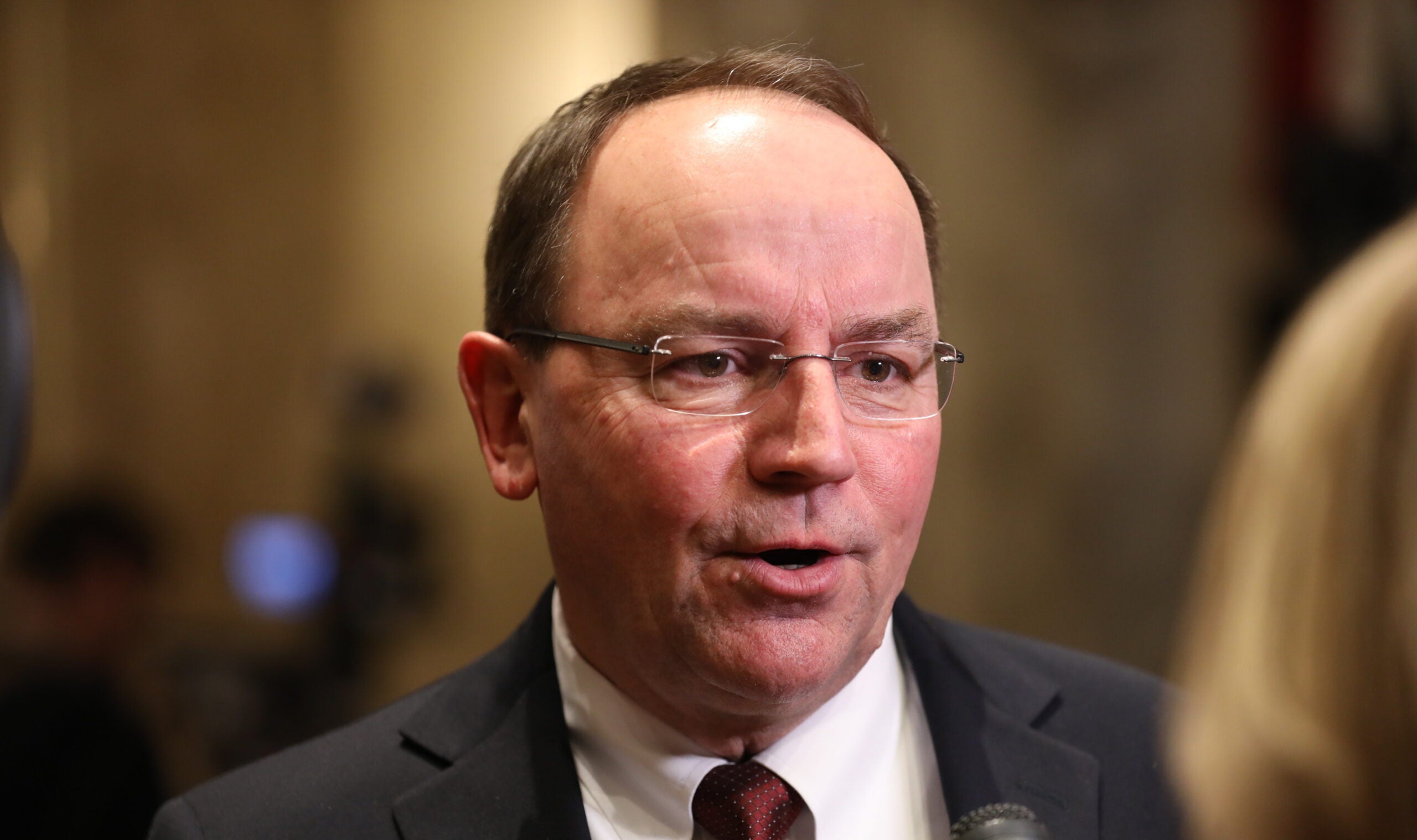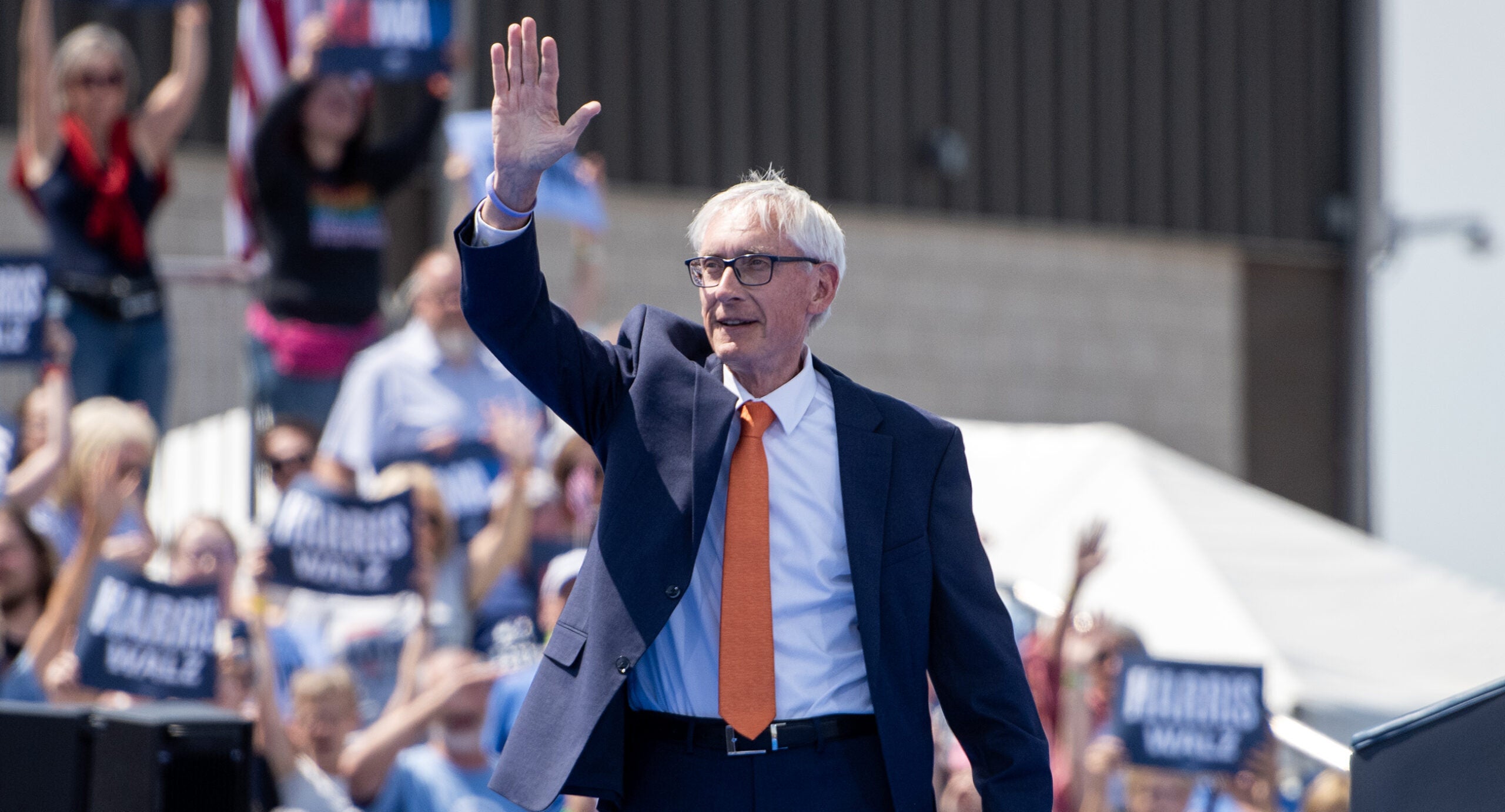The first and only debate in the race for Wisconsin governor was short on fireworks but offered plenty of contrasts between Democratic Gov. Tony Evers and Republican challenger Tim Michels.
Evers and Michels are locked in one of the closest watched and expensive races for governor in the country. Based on recent polling, they’re virtually tied.
Their debate, which was hosted by the Wisconsin Broadcasters Association, gave each candidate roughly a minute to respond to questions on a wide range of issues. Here are a few.
News with a little more humanity
WPR’s “Wisconsin Today” newsletter keeps you connected to the state you love without feeling overwhelmed. No paywall. No agenda. No corporate filter.
Attracting and retaining workers
One of the more noteworthy exchanges of the night came when candidates were asked how the state should go about attracting and retaining young adults to Wisconsin to stave off a workforce shortage.
Michels said the answer was in making the tax code more competitive and getting “people off their couches” and back to work.
“We created an entire class of lazy people during COVID,” Michels said. “It’s time to get them back engaged in our economy, to stop just sending them the unemployment checks.”
Evers disputed Michels’ comment.
“I’m still trying to battle the issue of lazy Wisconsinites when we have so few people that are unemployed in the state of Wisconsin,” Evers said.
Inflation & Projected surplus
Both Michels and Evers said they favored some kind of tax cuts to deal with the rising cost of living under inflation, which voters have identified as their top concern a month out from the election.
They might have the money to do it if current trends hold. Wisconsin’s budget ended the most recent fiscal year with a record $4.3 billion in its general fund.
“We’re going to lower our taxes on a middle-class folks in the state of Wisconsin by 10 percent,” Evers said, referencing a plan he introduced this year to spend the state’s projected budget surplus.
“We’re going to do massive tax reform,” Michels said. “Get more money in people’s pockets here in Wisconsin.”
Michels has said he’s open to a flat tax in Wisconsin as long as no income tax bracket ends up paying more. The state currently has a progressive income tax, which taxes wealthier residents at a higher rate.
Accepting the results of the next election
During his Republican primary campaign, Michels, who was endorsed by former President Donald Trump, would not commit to certifying the results of the 2024 presidential election.
On Friday, Michels changed his tune about 2024. He said that as governor, he would sign the Republican election bills Evers had vetoed, many of which would change the rules for absentee voting and ban private funding to run elections.
“Under a Gov. Michels administration, we will never have questions,” Michels said. “And of course, therefore, I will certify any elections after I’m elected Governor.”
Both candidates were later asked whether they would accept the outcome of the 2022 election.
“Yes,” Evers. “No matter who wins my opponent or me, I will certify that election.”
Michels did not make specific reference to the 2022 race, instead saying again that said he would certify “the next election” after he’s governor.
Crime and guns
Speaking to another top issue for Republicans — crime — Michels said his election would send a message to criminals.
“I’m going to let them know that there’s a new sheriff in town,” Michels said. “They’re going to understand if they’re not willing to do the time, they shouldn’t do the crime.”
Evers said he’d address crime by increasing state shared revenue funding to local governments to help them pay for police.
When asked about gun control proposals, Michels said he opposed a so-called “red flag” law that would let judges temporarily remove guns from owners who pose a danger to themselves or others.
“Responsible gun owners don’t have to worry about red flag laws because it’ll never be an issue for them,” Evers said.
Michels said he opposed the laws because they’d potentially let a “disgruntled ex” get someone’s guns taken away.
“The left always just wants to take away guns,” Michels said. “I will protect your Second Amendment rights.”
Teaching about race in school
Evers and Michels also differed sharply when it came to education, particularly when it came to teaching about race.
Michels and other Republicans have attacked the public school system for teaching what they say is “critical race theory,” a university level academic theory about how inequality gets reproduced and maintained in society.
GOP lawmakers passed a bill this past session that would have limited what schools can teach when it comes to race. It would have banned teaching that a person, by virtue of their race or sex, “bears responsibility for acts committed in the past by other individuals of the same race or sex.” The same bill would have banned teaching that a person should feel discomfort or guilt because of their race or sex.
Democratic critics of the bill argued it would prevent schools from teaching about systemic racism, including the history of slavery in the U.S. Evers vetoed the plan.
Candidates were asked how the history of race should be taught in Wisconsin.
“We’re gonna get parents involved,” Michels said. “Parents decide. Not a couple of woke educrats.”
Evers said schools should teach about race, citing as an example the interment of Japanese-Americans during World War II.
“We shouldn’t be afraid of that,” Evers said. “We are a strong state and a strong country. If we can’t talk about things like that we’re in sad shape.”
Abortion
When it came to abortion – a top issue for Democrats —Michels and Evers were asked what their position was on people crossing state lines to get an abortion where it’s legal.
“That’s something that we’ll have to sit down and work out,” Michels said. “But, you know, I’m not going to be this radical guy with checks at the border.”
Michels also said he’s not against contraception.
Evers, who like other Democrats has used the abortion issue to try to differentiate himself from Michels, did so again Friday.
“Women should have the ability and the right to make decisions about their health care, including reproductive health care, and that includes abortion,” Evers said.
Wisconsin Public Radio, © Copyright 2025, Board of Regents of the University of Wisconsin System and Wisconsin Educational Communications Board.







